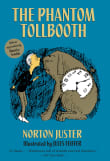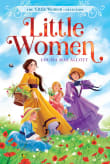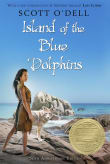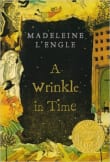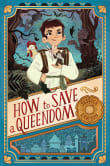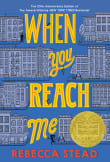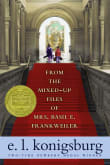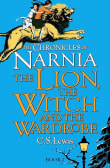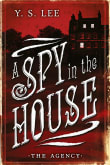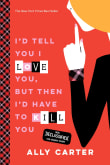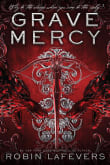Harriet the Spy

Book description
First published in 1974, a title in which Harriet M. Welsch, aspiring author, keeps a secret journal in which she records her thoughts about strangers and friends alike, but when her friends find the notebook with all its revelations, Harriet becomes the victim of a hate campaign.
Why read it?
12 authors picked Harriet the Spy as one of their favorite books. Why do they recommend it?

When I was nine, I stayed with my Grandparents for a week and went to the local bookshop every morning. One day, I randomly picked up Harriet the Spy, read the first page, and couldn’t stop. Over the years, I have read it over 50 times, and it still remains one of my all-time favorites.
This book has nothing to do with presenting and everything to do with being observant, a writer, and a spy. I couldn’t have a list of book recommendations without including this. Harriet is one of the best and most realistic heroines in children’s literature,…
From Louisa's list on boost confidence in giving presentations.

Unlike the sensitive, bullied, internally or externally wounded protagonist common in today’s mid-grade novels, Harriet the Spy is tenacious and smart and fights fire with fire. What a hero!
She sneaks into buildings to spy on unsuspecting grownups; she keeps a notebook to record her uncomfortably truth-filled observations of her schoolmates; and when she is ostracized because of it, she first retaliates with ferocity and then lies through her teeth, which effectively rehabilitates her.
Harriet the Spy is a refreshingly honest look at social hypocrisy, with an admirable hero who won’t back down and won’t stop being herself. If it…
From Annie's list on classic heroes with poor impulse control.

Louise Fitzhugh’s book Harriet the Spy was published in 1964, a little later than the others on my list. It has a younger protagonist but she is a model of proto-feminist girlhood for me. Harriet is an urban kid from an upper-class milieu with sophisticated taste. She has an imperious nanny who takes her on the subway to an art museum. Her parents are checked-out intellectuals so that Harriet is neglected in the best way, free to roam city streets. She is a tomboy and would-be writer who observes city life and people’s habits, not only in public spaces but…
From Pamela's list on midcentury groovy girls and freedom to read.
If you love Harriet the Spy...

I love stories with kids in the sixties in New York City when a kid could pretty much roam at will. This is one, though that’s not the focus. Harriet M. Welsch, who likes to think of herself as a sort of spy is definitely a keen observer. In her notebook, she writes down everything she knows about everyone, including her classmates and her best friends. It is all truthful, but sometimes not so flattering. Then she loses the notebook! Will she find it before someone else does and keep all the secrets secret? Or will it end up in…
From Bob's list on featuring girls who are overcomers.

If you’ve read this book (and who hasn’t?), you probably remember Harriet’s trusty notebook, her long-suffering nanny, Ole Golly, or her penchant for tomato sandwiches. But I love the way this book is also an incredibly specific portrait of the Upper East Side in the mid-20th century. Although Harriet lives a life of insane privilege (The size of her townhouse! The number of staff on her family’s payroll!), her spying, and her relationship with Ole Golly, give her insight into how the rest of the city lives, and the remarkable diversity of experiences within a single city block.
From Jennie's list on young readers set in old-school NYC.

I must have read this book twenty times when I was a kid. I can even remember using my school notebooks to scribble “spy notes” about my friends and teachers. Was I really that weird? Sure, but those activities were inspired by the (mis)adventures of Harriet M. Welsch, eleven-year-old agent of her own personal surveillance complex. In her own notebooks, Harriet records often-biting observations about everyone in her life, which is fine—until her notebook goes missing. With a surprisingly introspective protagonist who reaps the consequences of her own arrogance, this classic novel provides a compelling template for anyone writing about…
From Brett's list on wildly different, deeply flawed teenage protagonists.
If you love Louise Fitzhugh...

I always wanted to be Harriet M. Welsch. She was fearless, honest, and most importantly, a writer. Harriet sees everything, or at least, she thinks she does. But when her notebook falls into the wrong hands and sends her world into chaos, it’s what she learns about herself and the people around her that really stuck with me. This book is a classic—and for good reason. Harriet the Spy shows readers the importance of seeing the world around you, telling the truth, and being unapologetically yourself.
From Booki's list on strong-willed girls making their place in the world.

I read this book over and over as a kid, and it became one of my primary inspirations when I wrote Matasha. Harriet is a twelve-year-old living in New York City who spies on her neighbors and then writes about them in a secret diary. Harriet isn’t “nice.” She’s observant and judgmental and feisty and expressive (boy, is she expressive), and author Louise Fitzhugh, bless her, thinks that’s just fine. Harriet learns a lesson about compassion at the end, but it isn’t a treacly one.
From Pamela's list on children’s books that don’t condescend to children.

Harriet the Spy was one of my favorite books as a child. Although Harriet wasn’t actually attending a spy school, she was training to be a spy so she could become a writer. She observed her neighbors and friends with brutal honesty. In the end, she learned that she needed to temper her observations with kindness. This story touched me deeply. For years, I ate tomato sandwiches in honor of my beloved Harriet, and I hauled that book around with me until my copy became so tattered and worn it was unreadable.
From Kathleen's list on secret spy schools for girls.
If you love Harriet the Spy...

It may seem a strange lesson to want to teach, but I think it’s important for boys (and men) to know that girls (and women) are not somehow inherently more moral than they are. Girls can be just as “bad” as boys. Harriet is self-centered. She is mean and vengeful toward her friends. She lies, swears, and talks back to her parents, which earned the book the rather marvelous status of having been banned from some school libraries. Books like this help dismantle the old double standard for behavior, where girls are expected to be model citizens while “boys will…
From Erin's list on girl books to read to make your sons better men.
Want books like Harriet the Spy?
Our community of 12,000+ authors has personally recommended 97 books like Harriet the Spy.




